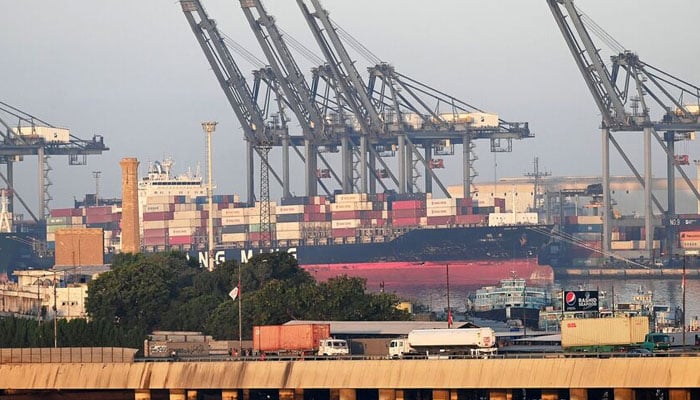IMF deal averts Pakistan’s likely default: American expert
The IMF deal comes after an eight-month delay and offers some respite to Pakistan
As the International Monetary Fund (IMF) announced that it has reached a staff-level agreement (SLA) with Pakistan, the director of the South Asia Institute at the Wilson Center said that the financial deal would prevent likely default, and bring stability to the country's economy.
Michael Kugleman, while speaking to Geo.tv on Friday, opined that a deal would "avert a likely default, unlock additional funding from key creditors, and improve investor confidence in the country's economy to 'some extent'."
His remarks came as the country went all-out to secure the SLA on a $3 billion "stand-by arrangement (SBA)" with the Washington-based lender.
Nathan Porter, the IMF’s Mission Chief to Pakistan, said in a statement: "I am pleased to announce that the IMF team has reached a staff-level agreement with the Pakistani authorities on a nine-month Stand-by Arrangement [SBA] in the amount of SDR2,250 million [about $3 billion or 111[%] of Pakistan’s IMF quota]."
Kugleman, while highlighting fundamental economic issues, said that the "IMF agreement will restore short-term stability."
"But with the economy still burdened by so many entrenched structural flaws, there would be a level of vulnerability that makes it difficult to bring a full recovery," he added.
Speaking about Finance Minister Ishaq Dar's claims that geopolitics was the reason behind inordinate delay in the IMF agreement, the expert said: "A deal has given the lie to the notion that geopolitics was delaying an agreement."
"Once Islamabad finally took the fiscal policy steps to meet IMF conditions, negotiations picked up in a hurry and produced a deal," he maintained.
Last week, in a last-ditch effort to clinch a stalled rescue package with the IMF, the government introduced a number of changes to its budget for the fiscal year 2024 including hiking key rate to 22% in its desperation to clinch the deal.
Finance Minister Ishaq Dar had announced on the floor of the National Assembly that for the fiscal year starting next month, the government will raise a further Rs215 billion in new tax and cut Rs85 billion in spending, as well as a number of other measures to shrink the fiscal deficit.
The IMF deal comes after an eight-month delay and offers some respite to Pakistan, which is battling an acute balance of payments crisis and falling foreign exchange reserves.
The $3 billion funding, spread over nine months, is higher than expected for Pakistan. The country was awaiting the release of the remaining $2.5 billion from a $6.5 billion bailout package agreed in 2019, which expires on Friday (today).
-
Bitcoin crashes below $63K as regulatory pressure and market fears grow
-
Bitwise Crypto Industry innovators ETF: What investors should do in 2026?
-
Nintendo shares slide again as momentum fears grow
-
Gold, silver prices fallen sharply; What’s driving the drop?
-
Gold’s record climb: Experts question if its safety is ‘overstated’
-
Dubai unveils plans to construct street built with real gold
-
Netflix slams Paramount’s bid: 'Doesn't pass sniff test’ as Warner battle escalates
-
Ubisoft: Shares plunge amid restructuring plan and wave of games cancellations












